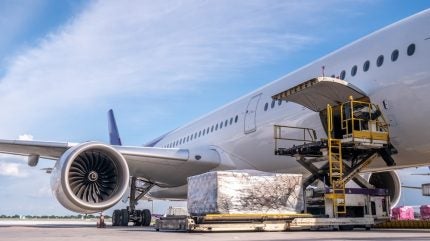
As retail continues to rely heavily on air freight, the sector faces significant environmental challenges. Greenhouse gas (GHG) emissions from air freight operators have surged by 25% compared to 2019 levels, according to a new report by Stand.earth.
This increase is attributed to enduring market changes prompted by supply chain shifts during the Covid-19 pandemic.
The report highlights that the United States is responsible for over 40% of air freight emissions, with 50% of the US’s domestic freighter emissions attributable to the “Big Three”: FedEx, UPS, and Amazon Air.
These retail logistics giants are significantly impacting the air freight sector’s carbon footprint.
FedEx and UPS alone comprised 24.7% of the industry’s carbon emissions in 2023, equivalent to 23.17 million metric tons of CO2. As a result, the contributions of the “Big Three” now present substantial obstacles to climate progress within the retail supply chain.
Pandemic-era changes drive retail air freight emissions
The growth in air freight emissions is linked to “market distortions originating in Covid-19 pandemic travel restrictions and supply chain disruptions” which accelerated the shift to air freight cargo, according to the report.
It notes that “rather than returning to pre-pandemic levels, air freight has plateaued and, in some cases, continues to grow.”
FedEx, UPS, and Amazon have embraced this new norm in the shipping industry, but their success comes at a significant environmental cost.
Before the pandemic, air freight was mainly used for perishable goods and time-sensitive deliveries, often shipped on passenger planes. However, with governments restricting travel during the Covid-19 pandemic, international demand for passenger flights declined by 75% compared to the previous year.
Consequently, freight companies invested heavily in expanding cargo-only fleets, which have become the preferred option for shippers post-pandemic. The report states that this shift was “what many assumed was a pandemic anomaly, however, is actually not only continuing, but in some cases growing.”
Amazon air’s rapid growth and environmental impact
Amazon Air stands out as the fastest-growing operator in the US. Between 2019 and 2023, Amazon Air’s emissions doubled year-over-year, reaching 2.4 million metric tons of CO2.
The rise of same-day and next-day delivery promises from e-commerce platforms has further exacerbated GHG emissions. Consumer expectations have shifted in line with Amazon’s dominance and the popularity of its One-Day shipping for Prime members.
In 2023, an estimated 180 million US-based Prime members received over 4 billion items through Amazon’s one-day shipping option. This service has pressured other e-commerce companies to offer similar delivery speeds, contributing to the rise in air freight emissions.
Future steps for sustainable retail shipping
Looking ahead, the report suggests that the Amazon case study demonstrates how a single company can influence consumer habits.
“By adopting greater transparency about the true costs of air freight shipping and providing a full accounting of their GHG emissions, the Big Three could set best practices for long-term sustainable business operations in the retail industry,” it says.
This would encourage smaller industry players to follow suit, fostering a more environmentally-conscious approach in the retail sector.



